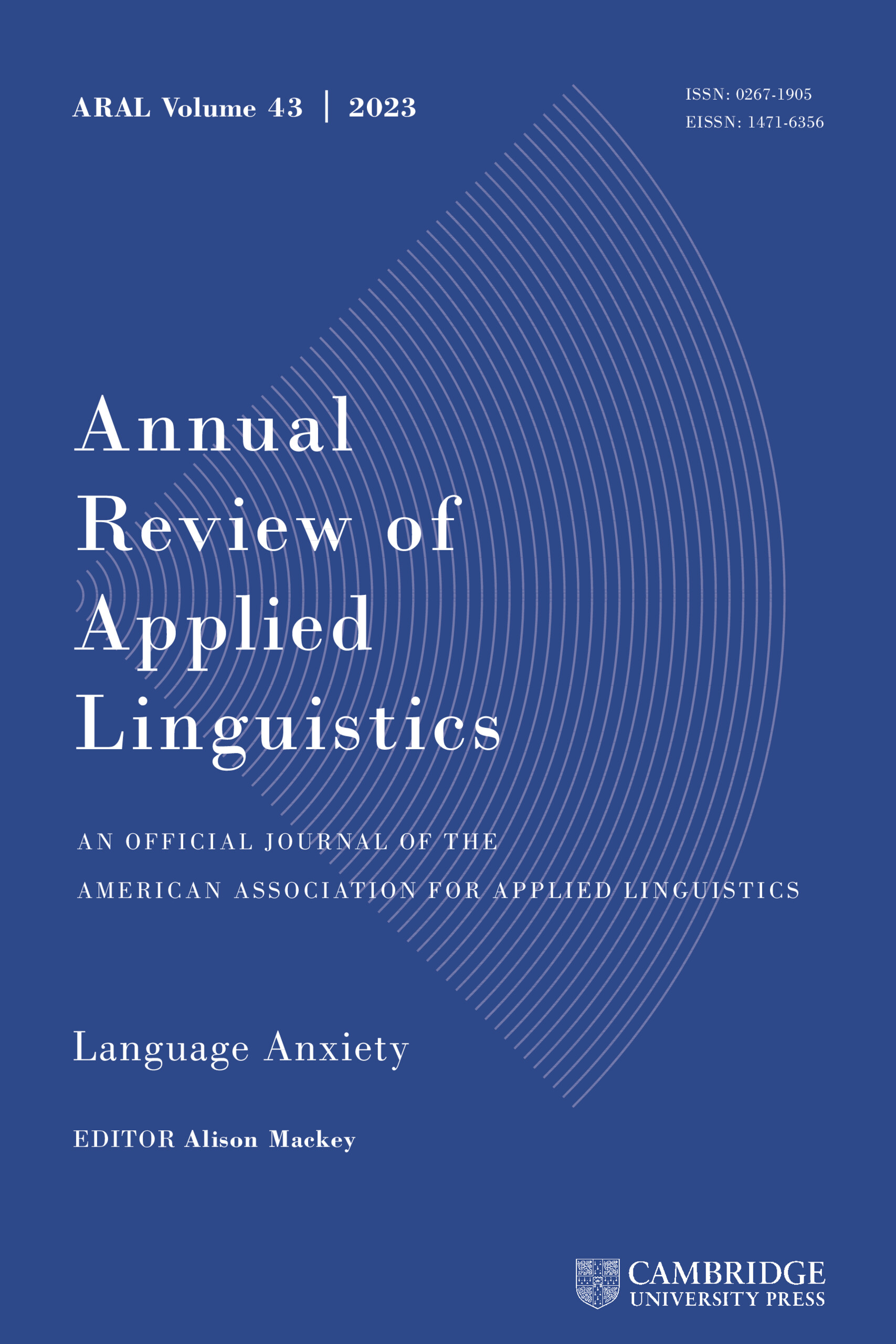Article contents
Translanguaging and Identity in Educational Settings
Published online by Cambridge University Press: 13 March 2015
Abstract
This article reviews recent scholarship in language, identity, and education. It critically reflects on developments in sociolinguistics as researchers have engaged with the dynamics and complexity of communication in superdiverse societies where people from an increased number of territories come into contact with one another, and where people have access to an increased range of online resources for communication. The authors focus in particular on recent scholarship on “translanguaging,” examining research that has viewed identities as socially constructed in interaction and considering the relationship between language and identities in contexts where communication is mobile and complex. This article offers a critical summary of the implications of these developments for education in the 21st century. In order to illustrate these theoretical points, the authors present an empirical example of the performance of language and identity in education from their recent research.
- Type
- Research Article
- Information
- Copyright
- Copyright © Cambridge University Press 2015
References
ANNOTATED BIBLIOGRAPHY
Blommaert, J. (2014). From mobility to complexity in sociolinguistic theory and method. Tilburg Papers in Culture Studies, 103. Tilburg, The Netherlands: Tilburg University.
Jan Blommaert provides a theoretical overview of changing theoretical orientation to language in use and action, proposing that mobility and complexity are key theoretical notions in understanding changing language practices.
Canagarajah, S. (2011). Translanguaging in the classroom: Emerging issues for research and pedagogy. Applied Linguistics Review, 2, 1–28.
Suresh Canagarajah synthesizes scholarship on translanguaging conducted in different academic disciplines and social domains, and raises critical questions on theory, research and pedagogy to take the orientation forward.
Creese, A., & Blackledge, A. (2010). Translanguaging in the bilingual classroom: A pedagogy for learning and teaching. Modern Language Journal, 94, 103–115.
Angela Creese and Adrian Blackledge present research which analyses translanguaging as pedagogy in complementary schools in the UK. In developing this analysis, the article takes a language ecology perspective and seeks to describe the interdependence of skills and knowledge across languages.
García, O., & Wei, L. (2014). Translanguaging: Language, bilingualism and education. Basingstoke, UK: Palgrave Macmillan.
Ofelia García and Li Wei trace the development of the theory of translanguaging and consider its relationship with traditional theories and models of language and bilingualism. Based on practices by students and teachers in a variety of educational contexts, this book describes how translanguaging is used by bilingual learners to learn and by teachers to teach.
REFERENCES
- 306
- Cited by


